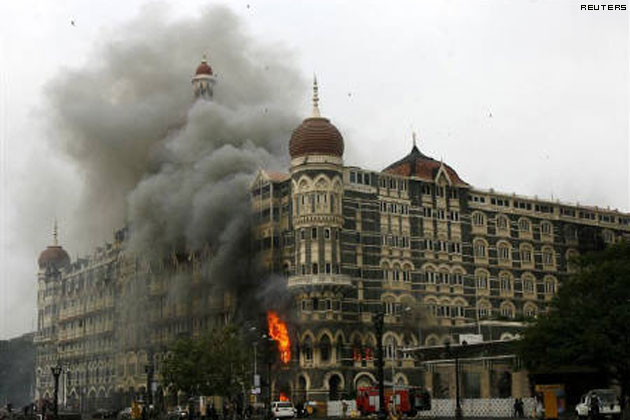
New Delhi, June 25: The Delhi Police has arrested suspected key 26/11 Mumbai attacks plotter Abu Hamza at the Indira Gandhi International airport. Sources say Hamza had arrived in Delhi from the Gulf when he was arrested. Hamza was produced before a court which remanded him to 15-day police custody.
According to reports, Hamza alias Sayeed Zabiuddin alias Zabi Ansari alias Riyasat Ali is a suspected Indian Mujahideen terrorist. He is an Indian national who went to Pakistan for allegedly training people for the 26/11 attacks.
Hamza was arrested after an Intelligence Bureau tip-off. His arrest is being seen as a crucial breakthrough and is likely to strengthen the 26/11 case. The 30-year-old who hails from Georai area of Beed district in Maharashtra, was arrested on June 21 when he arrived in India from a Gulf country, official sources.
With his arrest, the mysterious voice recorded during the conversation between 10 Lashker terrorists and their handlers in Pakistan has been identified, the sources said. Sources say he was in the Karachi control room at the time of attacks in Mumbai. According to the officials associated with the probe, Ansari had told the Lashkar terrorists carrying out attack in Nariman House to convey to the media that the "attack was a trailer and the entire movie was yet to come".
In the intercepted tapes, Ansari was also heard using typical Hindi words like "prashasan" (government) and was directing the terrorists to conceal their Pakistani identity and identify themselves as Deccan Mujahideen hailing from Toli Chowk in Hyderabad.
His presence was also stated by Ajmal Kasab, the lone terrorist arrested during the Mumbai attack, in his deposition before a special court. He told the court that one person by the name of Abu Jindal had tutored 10 terrorists on how to speak Hindi.
Hamza was named in the dossier to Pakistan as India's most wanted. There was also an Interpol notice against him in 2009. Hamza is also alleged to have a hand in the IISC Bangalore attack in 2005.
Lashkar-e-Toiba operative David Coleman Headley also named Hamza as the Lashkar's India expert.
Missing since 2005, Ansari, who had undergone training at Indian Technical Institute in Beed, had a sudden rise in the ranks of Lashker-e-Taiba after he was indoctrinate by banned SIMI post Gujarat riots in 2002.
The Central security agencies had quizzed many arrested terrorists to study the case of Ansari during which it came to light that he had been operating out of terror camps in Karachi and Pakistan-occupied Kashmir and was a key figure in the terror group's plan to carry out the strikes in the country's hinterland.





Comments
Add new comment